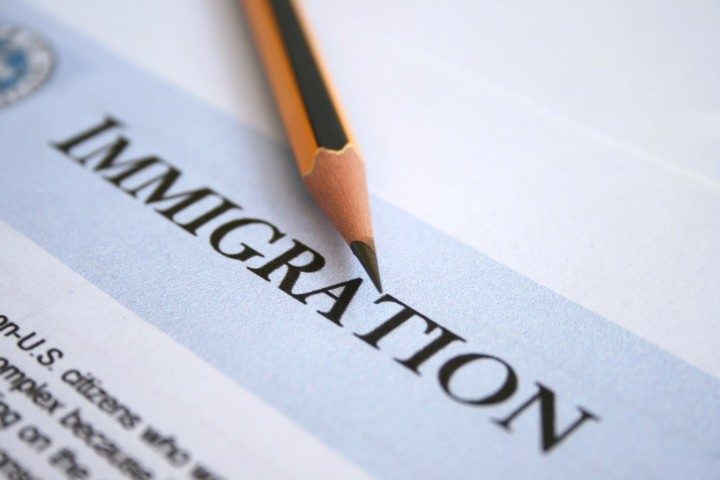
“We grow too soon old and too late smart,” goes an old Dutch proverb. We all experience this, too, sometimes having a realization and then, if we’re sufficiently humble, thinking “Why didn’t that occur to me sooner?” Yet many might hope (surely in vain) that the people influencing government policy wouldn’t have to wait until they’re 78 to apprehend the obvious. And this is exactly what has happened with one Professor Angus Deaton, an Ivy League economist who now, wizened and just a bit wiser, has finally repudiated his “immigrationism.”
In fairness, though, he’s doing far better than famed “intellectual” the late Henry Kissinger: He was 100 years old when he woke up and warned last year that modern (im)migration is balkanizing the West.
Deaton, writing at the International Monetary Fund (IMF) website, also outlined his renunciation of other long-held beliefs, such as globalism.
Introducing the immigration aspect of this story and reflecting a surely common frustration, commentator Olivia Murray writes that the professor “finally realized that importing millions of freeloaders to our welfare state isn’t such a good thing for the working class taxpayers, or the economy. Deaton is a Princeton economist and a Nobel recipient, so cut him some slack, he’s a little slower than the rest of us—remember, ‘the road to Hell is paved with Ivy League degrees’ and apparently, Nobel Prizes too.” (Yes, well, Nobels were given to ex-vice president Al Gore for pushing climate alarmism and to Barack Obama for perceived potential that never materialized.)
Deaton explained his change of heart. “I used to subscribe to the near consensus among economists that immigration to the US was a good thing, with great benefits to the migrants and little or no cost to domestic low-skilled workers,” he wrote. “I no longer think so.”
Some may wonder what his first clue was. Was is that, as Murray writes, importing “tens of millions of third-world people with no skills and no money into a first world nation with an enshrined welfare state, does not benefit the people of that nation, as the latter are forced to foot the bill”?
Know, too, that some of those illegally crossing our southern border are also illiterate — even in their own languages.
In reality, though, Deaton still has learning to do, as he justifies his newfound opposition to immigration with a politically correct imperative. “Inequality was high when America was open,” he explained, “was much lower when the borders were closed, and rose again post Hart-Celler (the Immigration and Nationality Act of 1965) as the fraction of foreign-born people rose back to its levels in the Gilded Age.” The problem?
Equality is an irrelevant measure. I explained why here, here, here, and here. In a nutshell, though, the issue is this: Equality tells us nothing about quality. You can have equality in misery, poverty, sickness, or stupidity — or in misconceptions.
Speaking of which, as Murray mentioned and famed economist Milton Friedman and others have said, you can’t have mass migration and a welfare state. Here’s what’s unsaid:
You can’t have our mass migration and not have a welfare state.
That is to say, even if you didn’t have a welfare state, importing vast numbers of relatively poor people and then ultimately naturalizing them and letting them vote would ensure one’s eventual development. For these newcomers will support demagogic politicians who’ll promise to institute a welfare state (in exchange for power).
This isn’t theoretical. Eighty-five to 90 percent of our post-1967 immigrants have come from the Third World, and 70 to 90 percent have voted for statist Democrats upon naturalization. (Hence the Democratic Party’s current facilitation of the southern border invasion.) Do you think you can give poorer people the right to vote to take your money and that they won’t do so?
Yet viewing this through just an economic lens still misses the point, as I explained last year in “Hidden Marxism: Treating Immigrants Like Robots.” Unlike what Karl Marx apparently believed, man “is not just an economic creature,” I wrote. “He also has intellectual, emotional, psychological, moral and spiritual dimensions.” I then elaborated:
Do the work skills and ethic newcomers bring with them define them? Are those qualities the most important things they bring to our shores? Since they’re not robots and won’t actually just be cogs in the economy, no. Rather, the most important things they bring are their beliefs.
To further illustrate the economic-being approach’s folly, let’s apply the standard not to (what should be) our national family, but our actual one. If you contemplated taking an outsider into your home, would you consider just economics? Would it only matter that he was going to contribute another $800 monthly to the family budget? Or would you first consider what beliefs and behaviors he’d bring into your home — how he, for instance, would influence your kids?
It’s likewise with the national family, of course. Absorb 10 million Muslim jihadists or 10 million Nazis over time, and it will have some political and social effect whether they’re low-skilled or high-skilled. For either way, their skill at “being American” will be fatally poor.
Unfortunately, economists, even quite intelligent ones, often don’t consider immigrants in all their dimensions because these specialists are trained in only one dimension: economics. As is often said, however, demography is destiny. We’ve frequently heard, “Without immigration, who will pick our fruit?” (Answer: machines.) But trading our cultural birthright for a promise of cheap grapes doesn’t exactly sound like a good deal.



